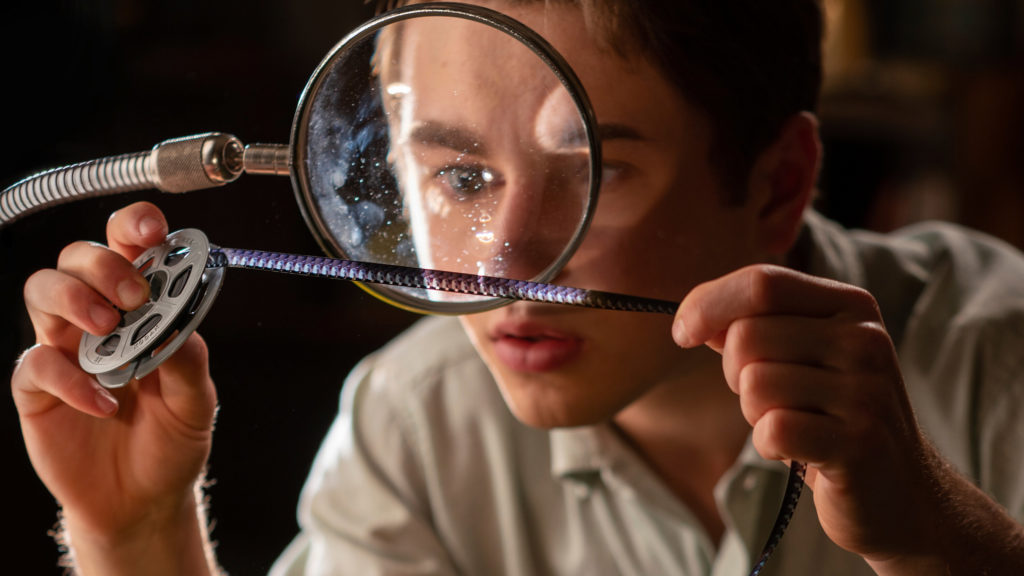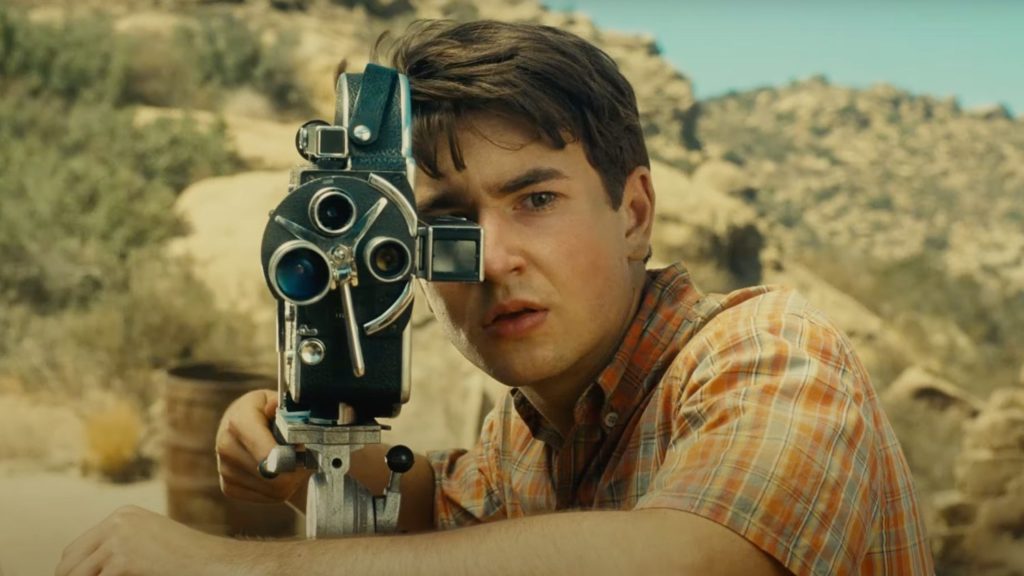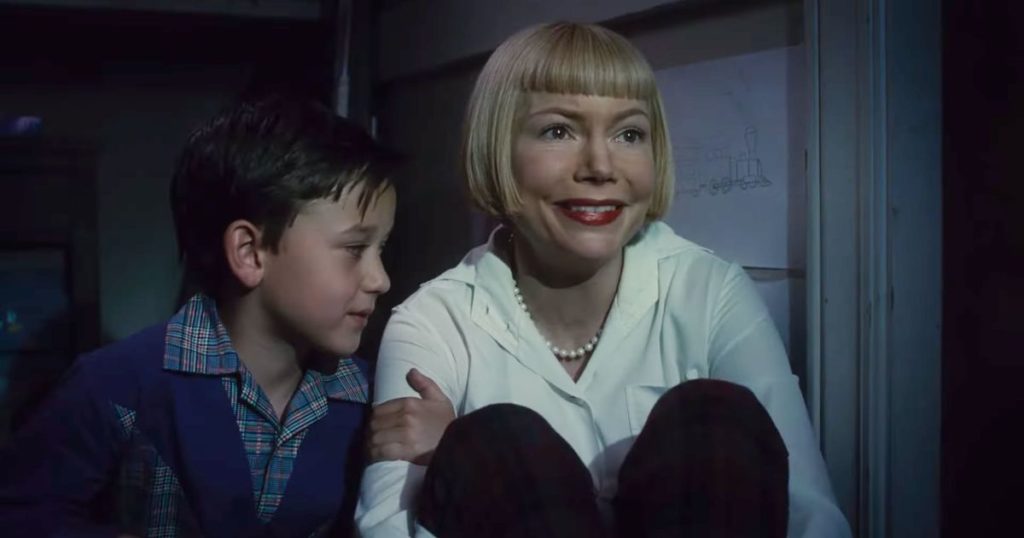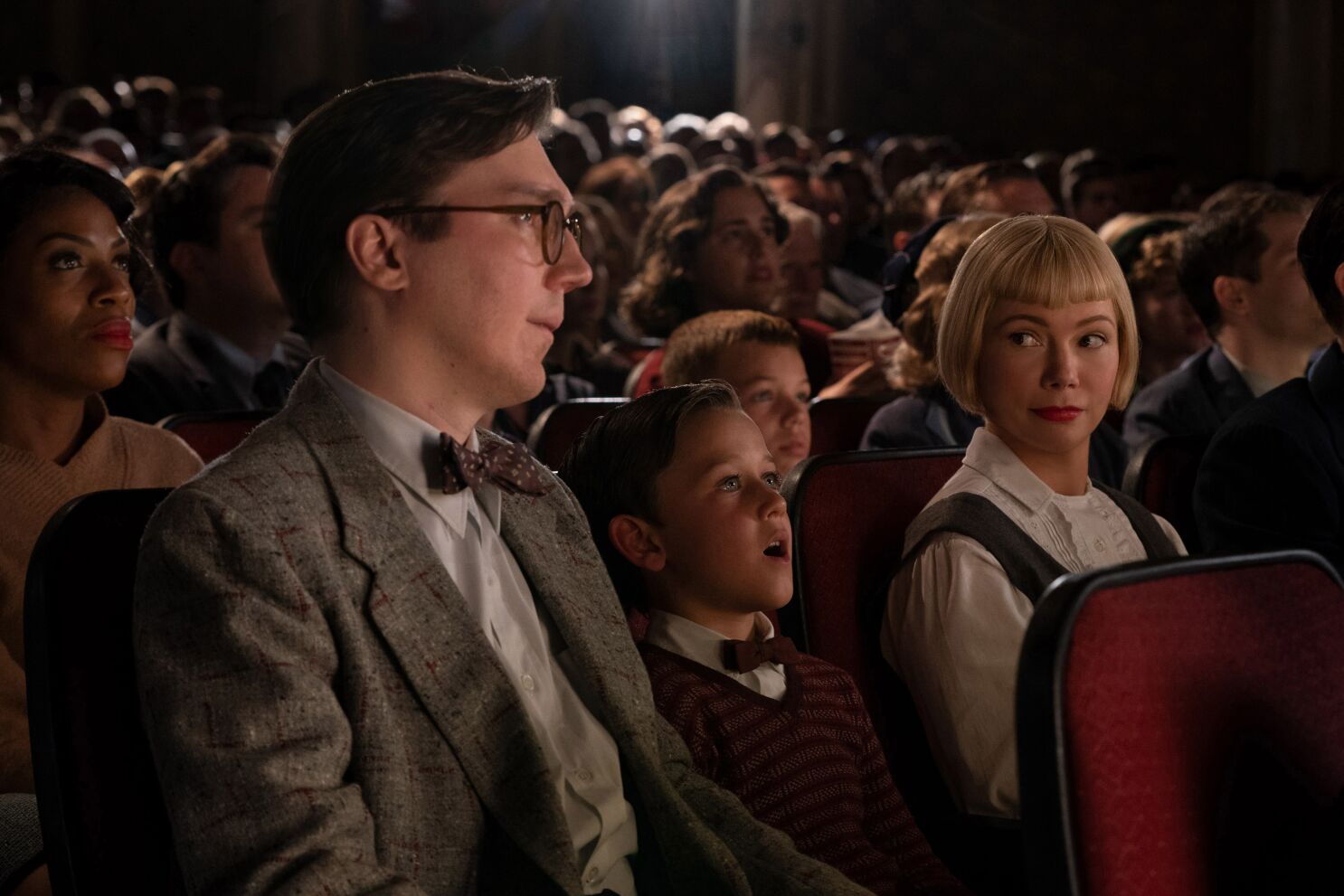Could Steven Spielberg’s semi-autobiographical The Fabelmans, about the artistic birth of and influences on perhaps the most populist American film director of all time, clinch the Best Picture Oscar come next March? Current thinking is that the picture, and its popular director, are well positioned for top honors. But is the film good enough? That may another matter.
Certainly on the subject of filmmaker origin stories Spielberg is in good company this movie season, one that has seen several directorial memoirs mounted via various, semi-fictional guises—James Gray looks at his adolescence and privilege in Armageddon Time, Alejandro Gonazalez-Inarritu contemplates imposter syndrome in Bardo: False Chronicle of a Handful of Truths, Sam Mendes nods to his early love of movies in Empire of Light and several degrees removed (and minus the self-reflection) is Damien Chazelle, paying Hollywood Babylon homage to backstage bacchanalia circa 1930s. Movies about men and the movies that made them—introspective variations on Fellini’s prototypical 8 1/2—are suddenly back en vogue. But does that make them good?
In Spielberg’s case, it means somewhere in the middle. Co-written by the filmmaker and longtime collaborator Tony Kushner, The Fablemans is a curiously episodic film with flashes of inspiration, elation and sorrow. Yet somehow, for its often enjoyable merits, it lacks sweep and grandeur. For a movie about artistic passion, it often feels, well, told in a lower key.

Paul Dano and Michelle Williams play 1952 married couple Burt and Mitzi Fabelman (surrogates for Spielberg’s mom and pop), immediately established as polar opposites—she’s the artist and he’s the scientist—and as the picture opens they accompany young son Sammy (Mateo Zoryon Francis-DeFord) to a showing of Cecile B. DeMille’s The Greatest Show on Earth, an opus that makes a profound impression on the youth.
Mitzi, an accomplished pianist whose own dreams were dashed for family and a loveless marriage, is quick to recognize her son’s artistic awakening, encouraging his 8mm recreation of that picture’s famed train crash. But computer engineer Burt insists his son’s “hobby” be discouraged for more pragmatic endeavors. This sets up the central relationship in the film, between mother and son, and boy is it a complicated, push-pull beauty. It also may be the film’s strongest suit, Mitzi going to bat with Burt as chief advocate of her son’s burgeoning talent.
For all her manic, labored joie de vivre—driving the kids into a tornado, dancing nude beneath a sheerly lit nightgown during a family camping trip and buying a pet monkey to add some much needed zest to her domestication—Mitzi is hopelessly depressed. Performing living room concerts for the captive family audience on her beloved Steinway & Sons piano and carelessly falling into a clandestine affair with Burt’s college and best friend “Uncle” Benny (Seth Rogen), she is slowly, not-so-silently coming apart.
As teenage Sammy (the excellent Gabriel LaBelle) comes into his own as a fledgling filmmaker his stylized and energetic recreations of period, John Wayne westerns cast with boy scout buddies are amongst The Fabelmans‘ strongest moments. But he also trains his lens on family activities, his home movies inadvertently catching Mitzi and Benny in surreptitious clinches. This loss of innocence, of notions of parents as fallen paragons of whatever we we made them, is intermittently affecting as mother and son navigate his thorny discovery.

Meanwhile, Burt’s career on the upswing means the family moves around quite a bit, from New Jersey to Phoenix and then on to California, further diminishing Mitzi and leading to a painful family truth-telling session that lays bare the sins of the fathers visited on their delicate children (including the wonderful Julia Butters as sister Anne). Certainly for Spielberg these are moments not borne from nostalgic reverie but rather ripped from personal pain.
In the picture’s second half, set in sunny California, Jewish Sammy faces antisemitic bullies (Sam Rechner, Oaks Fegley) in high school while falling in love with a Jesus-obsessed Christian classmate (refreshing Chloe East), all while things at home are falling apart. Yet he continues making films—his passion is truly his escape—and his talent ultimately wins the day in an awkwardly written and acted scene set during the high school prom where Sammy makes peace with his chief tormenter.
The great character actress Jeannie Berlin turns up as Burt’s demonstrative mother, hard on Mitzi (“That’s a brisket?”), and Judd Hirsch, as Mitzi’s wayward uncle, a former actor, has about ten minutes of screen time to dispense life lessons, encouraging Sammy to run directly toward his dreams. Hirsch, one of the greats, tears into the role with scenery chewing gusto, which on my Acting Barometer pinged too high and ripe; performed not authentic.
Yet despite the personal storytelling, The Fabelmans feels a touch remote and often curiously muted. Like Sammy Fabelman’s childhood and Mitzi and Burt’s tumultuous marriage, the picture surrounding them is a bit up and down, sometimes messy and never quite reaching dramatic critical mass. One considers if whether removing Spielberg’s name and the knowledge that the film is based on his upbringing would render a film that might leave some scratching their heads as to the ultimate point.
But just when we begin checking our watches (the picture runs 151 minutes), Sammy finally gets a break and lands, as a youngster on the studio backlot, in the office of “the greatest director in the world,” played by David Lynch in a lively cameo. In this sequence, a magic enervates The Fabelmans, making one wish there had been more, or perhaps that the film had explored what most would like to see—the filmmaker’s early days in the industry at Universal and Columbia cutting his teeth on such classics as Duel, Jaws and Close Encounters of the Third Kind. As it stands, Spielberg may have chosen the most personally meaningful chapters of his young life for The Fabelmans, but for us perhaps not the most compelling.

The cast is uniformly professional, but dominating the picture is the consummate Williams, a four-time Oscar nominee in the upper echelon of American actresses who can do anything—gritty naturalism in Manchester by the Sea and numerous Kelly Reichardt indies, incandescence in her Golden Globe-winning My Week with Marilyn performance, revelatory in her Emmy-winning Fosse/Verdon turn to name just a few—and the star gives Mitzi her all. It’s a highly stylized, theatrical performance that skirts drama and melodrama, a not so controlled implosion both writ large and often detailed in heartbreak. Some may find it too grand, too “performed” and significantly “actressy”—yet Williams’ investment, which yields considerably pathos, is perhaps overperformed by half, clearly directed by Spielberg to play to the back row of a Broadway house, and not amongst her best.
Despite Williams’ efforts, there is something almost schizophrenic, or perhaps out of reach, about how Spielberg chooses to depict Mitzi’s neuroses. As in the recent childhood memoir Aftersun, which explored an adolescent’s very limited view of complicated adult psychology, Sammy’s (or Spielberg’s) comprehension of his mother’s internal conflicts is limited to what his young heart is able to comprehend. Obviously as a adult, Spielberg may know more about his mother’s psychology than he lets on in The Fabelmans, torn between sentimental reverie for her sacrifices versus truly depicting the actual nature of her issues (though the notion of “therapy” is mentioned twice).
The Fabelmans is a sum-of-its-parts picture, meaning some of its parts—the moviemaking sequences and its rousing finale—are undeniable. But taken as a whole, the picture is peculiarly less impactful and does not rank amongst Spielberg’s finest.
2 1/2 stars



